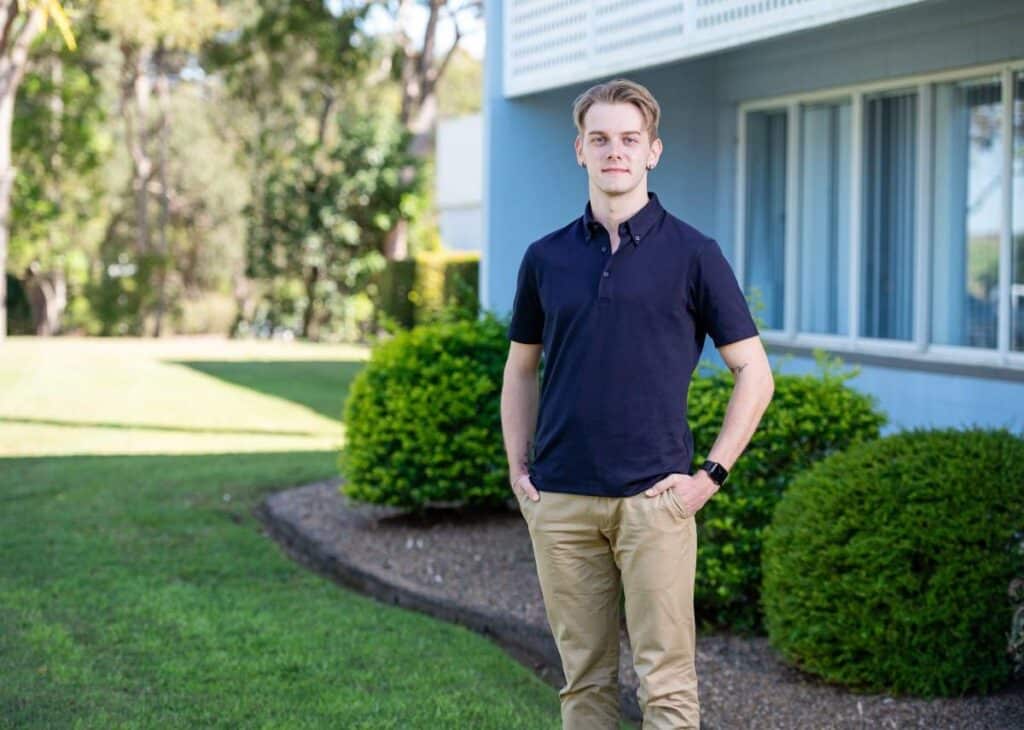
CQUniversity (CQU) Bundaberg nursing lecturer and PhD student Nick Nijkamp has been awarded the Centaur Memorial Fund for Nurses Scholarship valued at $10,000.
The scholarship will support Nick’s ongoing research endeavours supervised by Professor Doctor Pauline Calleja, Doctor Leanne Jack and Doctor Ashlyn Sahay at the university.
How does it feel to receive such a prestigious scholarship?
Winning the Centaur Memorial Fund for Nurses Scholarship is an immensely proud and humbling experience, deeply validating my dedication to nursing research and its potential to improve healthcare outcomes.
This recognition is not only a personal milestone but also underscores the vital role of nursing in healthcare innovation, motivating me to continue contributing to our field with even greater enthusiasm.
The scholarship is a significant boost to my PhD journey, offering both financial support and a sense of responsibility to uphold the legacy of excellence associated with the Centaur Memorial Fund.
It inspires me to persist in my research endeavours, aiming to make a meaningful impact on patient care and nursing practice.
Can you tell us more about your research?
My research delves into the critical phase of transition to practice for new perioperative nurses, focusing on programs that play a pivotal role in their education, support and assimilation into specialised areas of nursing.
This transition is crucial, as it impacts not only the nurses’ competence and confidence but also the quality of patient care they provide.
This study aims to develop a comprehensive framework and guidelines for healthcare organisations to design, develop and implement effective transition-to-practice programs for perioperative nurses.
This framework will be grounded in robust research and learning theories, ensuring it is both evidence-based and practically applicable.
With the support of the Centaur Memorial Fund for Nurses Scholarship, I plan to engage in further publications and conference presentations on my research topic.
What inspired you to choose this career path and what would your advice be to other people considering it?
My advice to anyone considering a career in nursing education is straightforward: jump in and do it.
The journey into nursing and nursing education is one of profound impact and personal fulfilment.
I chose this career path driven by a passion for educating the next generation of nurses, aiming to equip them with the knowledge, skills and compassion necessary to excel in this demanding yet rewarding field.
What motivates me daily is the opportunity to make a tangible difference in the lives of patients indirectly by shaping competent, caring nurses who will go on to provide high-quality care.
Despite the shift towards education, I firmly believe in the importance of staying actively involved in clinical practice.
This is why I continue to work casually across two healthcare facilities in Bundaberg.
Doing so keeps me updated on current practices and challenges in the field, ensuring that my teaching is not only based on theoretical knowledge but is also grounded in the realities and advancements of modern healthcare.
Why do you think nursing education and research is important, especially in local communities like Bundaberg?
Nursing education and research hold a fundamental role in advancing healthcare quality and patient outcomes, both nationally and within local communities like Bundaberg.
My study, while national in scope, has profound implications for regional areas that provide perioperative nursing care.
These communities often face unique challenges, including resource limitations and access to specialised training and development programs.
By focusing on the transition to practice for new perioperative nurses, my research aims to address these challenges directly, offering evidence-based strategies to support and enhance nursing practice in all perioperative settings.
The importance of nursing education and research in regions like Bundaberg cannot be overstated.
It is crucial for the continuous improvement of patient care, the development of healthcare policies, and the overall sustainability of health services in regional Australia.




